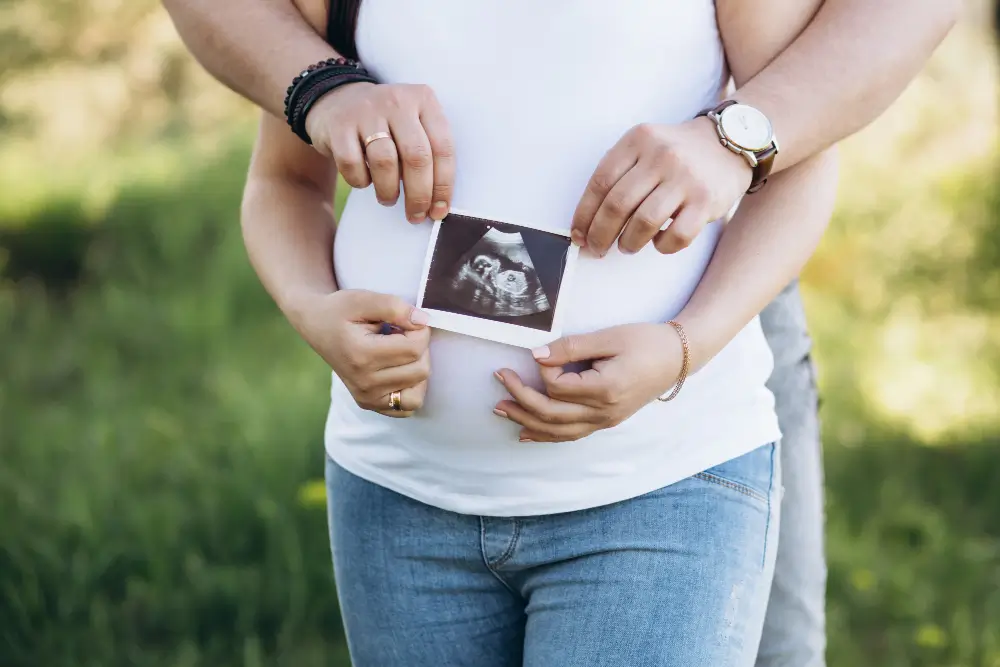If you’re in the process of considering becoming an egg donor, you might be curious about what happens at every doctor’s appointment along the way. Having insight into the clinical aspects of an egg donation cycle can alleviate stress and prepare you better. This blog will walk you through all of the medical visits, screening, through post-retrieval follow-up, so that you can know exactly what to expect.
At EggDonors4All, we’re committed to making your egg donation journey transparent, safe, and empowering. Let’s take a closer look at what happens during your appointments throughout an egg donation cycle.
What Is an Egg Donation Cycle?
Before diving into your appointments, let’s clarify what is an egg donation cycle.
A donation cycle is a legal and medical process where the donor provides her eggs to help individuals or couples who are not fertile. The process includes screening, hormonal stimulation, egg retrieval, and recovery. Each step involves doctor appointments in an effort to safeguard your health as well as guarantee a successful cycle.
Understanding the whole process of the egg donation cycle will empower you and well-informed you from day one.
Step 1: Initial Screening Appointment
Upon completing your application and pre-qualification, your initial visit will consist of medical and psychological screening.
Medical Evaluation:
- Lab work to test hormone levels (FSH, LH, AMH, estradiol)
- Testing for infectious diseases (HIV, Hepatitis, STDs)
- Genetic carrier panel
- Physical exam and a pelvic ultrasound
Psychological Evaluation:
- Assessment of emotional readiness
- Review of your motivation and interpretation of the commitment
These screenings are for your protection and that of the potential parents. You will meet with compassionate, licensed professionals who will guide you gently.
Step 2: Legal Counseling and Consents
After your screening clears, you’ll meet with a lawyer. This is required and typically happens virtually or in person.
- You’ll review and sign the legal contract
- The contract outlines your rights, the anonymity of donors, and payment
- You may pose any concerns over the donation agreement
EggDonors4All appoints you a complimentary attorney so that you receive all the facts clearly explained. Once the documents are signed, you’re prepared to initiate the medical egg donation cycle.
Step 3: Cycle Preparation and Birth Control Start
To prepare for the egg donation process, your doctor will prescribe birth control pills to sync your menstrual cycle with the recipient’s cycle.
Appointment Expectations:
- Bloodwork to confirm baseline hormone levels
- Instructions on when to start and stop birth control
This synchronization ensures optimal timing for your body to begin stimulation.
Step 4: Baseline Ultrasound and Medication Instructions
On day 2 or 3 of your period, you’ll visit the clinic for a baseline ultrasound and bloodwork. This confirms your ovaries are at rest before starting stimulation medications.
What to Expect:
- Transvaginal ultrasound to check ovarian follicles
- Estradiol and LH blood levels
- Medication schedule review
- Instruction on how to administer hormone injections (FSH, Menopur, or Gonal-F)
This appointment is a key milestone in your egg donation cycle, marking the start of the stimulation phase.
Step 5: Monitoring Appointments During Hormone Stimulation
You will have 4–6 monitoring visits over the next 10–14 days on hormone injections.
Each Monitoring Visit Includes:
- Transvaginal ultrasound to track follicular growth
- Blood test to track estradiol levels
- Dose adjustment if needed
- Discussion of side effects or concerns
These visits are significant in order to check the response of your body and avoid side effects such as ovarian hyperstimulation syndrome (OHSS).
Your coordinator will let you know when to report and when your body is ready for the next step.
Step 6: Trigger Shot Appointment
Once your follicles are ripe, typically around day 10-12, your doctor will plan the trigger shot.
At This Appointment:
- Ultrasound verifies the final measurements of your follicles
- The nurse will give or instruct on the hCG or Lupron injection
- You’ll be booked for egg retrieval 36 hours after this shot
Time is of the essence here. Your coordinator will take care of it, so you won’t miss this important window.
Step 7: Egg Retrieval Day
The egg retrieval procedure is done in a fertility clinic or surgical suite.
What Happens:
- You’ll be there with an empty stomach (having fasted for 8 hours previously)
- Light IV sedation is administered.
- The doctor utilizes ultrasound guidance to extract mature eggs from your ovaries.
- The procedure takes 20–30 minutes.
After recovery, you’ll rest in a recovery room and will be discharged the same day. Most donors report only mild cramping and return to normal activities within 1–2 days.
Step 8: Post-Retrieval Follow-Up Appointment
You’ll return for a post-retrieval check-up within a week to ensure your body is healing well.
Follow-Up Visit Includes:
- Ultrasound to check the various
- Discussion of any symptoms (cramping, bloating)
- Instructions on when to get back to full activity
Your health is always our top priority through every step of the egg donation cycle.
Bonus: Emotional and Psychological Support Appointments
Some donors prefer to see a counselor after the cycle and go over their experience. This is entirely your choice, but it can be helpful.
At EggDonors4All, we give ongoing support so your emotional health is as valued as your physical health.
FAQs About Doctor Appointments During an Egg Donation Cycle
Q. What is an egg donation cycle and how many appointments are involved?
Ans : An egg donation cycle includes screening, legal preparation, medication monitoring, retrieval, and follow-up. Most donors have 6–10 medical visits during the process.
Q. Are the injections painful?
Ans :The injections are also reported by most donors as a little uncomfortable, similar to a pinch. Our nurses also teach you how to do safe self-injection.
Q. Will I be under anesthesia for egg retrieval?
Ans :You will be lightly sedated (not anesthetized) and won’t feel anything during retrieval.
Q. Can I bring someone with me to appointments?
Ans : Yes, especially on retrieval day. We recommend that a friend or family member you trust drive you home.
Q. What if I feel anxious during the cycle?
Ans : Absolutely not. Our coordinators and counselors are here to walk you through it.
Final Thoughts
Doctor visits are a critical component of the egg donation cycle and are designed to monitor your safety, optimize your body’s response, and ensure a successful result. Understanding what an egg donation cycle is and what you can expect at each visit will make you feel more comfortable, prepared, and in control.
At EggDonors4All, we’re here for you for every appointment, every question, and every triumph. Your comfort, safety, and health are our top priority—always.

Dr. Kulsoom Baloch
Dr. Kulsoom Baloch is a dedicated donor coordinator at Indian Egg Donors, leveraging her extensive background in medicine and public health. She holds an MBBS from Ziauddin University, Pakistan, and an MPH from Hofstra University, New York. With three years of clinical experience at prominent hospitals in Karachi, Pakistan, Dr. Baloch has honed her skills in patient care and medical research.










